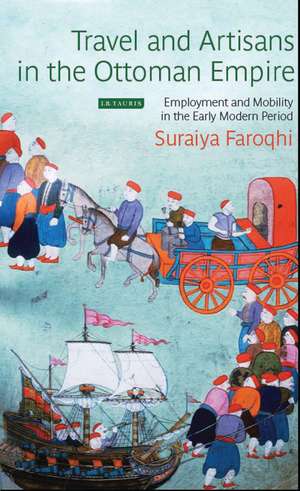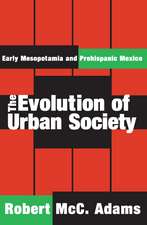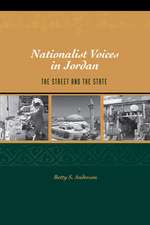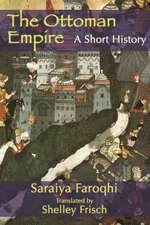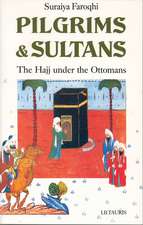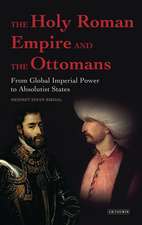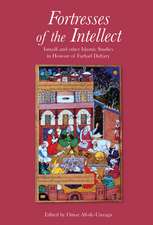Travel and Artisans in the Ottoman Empire: Employment and Mobility in the Early Modern Era
Autor Suraiya Faroqhien Limba Engleză Paperback – 7 iul 2016
| Toate formatele și edițiile | Preț | Express |
|---|---|---|
| Paperback (1) | 174.07 lei 22-36 zile | |
| Bloomsbury Publishing – 7 iul 2016 | 174.07 lei 22-36 zile | |
| Hardback (1) | 776.24 lei 43-57 zile | |
| Bloomsbury Publishing – 30 ian 2014 | 776.24 lei 43-57 zile |
Preț: 174.07 lei
Preț vechi: 200.41 lei
-13% Nou
Puncte Express: 261
Preț estimativ în valută:
33.31€ • 34.87$ • 27.56£
33.31€ • 34.87$ • 27.56£
Carte disponibilă
Livrare economică 17-31 martie
Preluare comenzi: 021 569.72.76
Specificații
ISBN-13: 9781784536367
ISBN-10: 1784536369
Pagini: 320
Ilustrații: 4 maps
Dimensiuni: 156 x 234 x 25 mm
Greutate: 0.43 kg
Editura: Bloomsbury Publishing
Colecția I.B.Tauris
Locul publicării:London, United Kingdom
ISBN-10: 1784536369
Pagini: 320
Ilustrații: 4 maps
Dimensiuni: 156 x 234 x 25 mm
Greutate: 0.43 kg
Editura: Bloomsbury Publishing
Colecția I.B.Tauris
Locul publicării:London, United Kingdom
Notă biografică
Suraiya Faroqhi is Professor of History at Istanbul Bilgi University and Emerita Professor of Ottoman Studies at the Ludwig Maximilians Universitat in Munich. She is a renowned authority on Ottoman history and her previous publications include: The Ottoman Empire and the World Around It; Artisans of Empire: Crafts and Craftspeople Under the Ottomans and Subjects of the Sultan: Culture and Daily Life in the Ottoman Empire (all I.B.Tauris).
Cuprins
IntroductionPART I: TravelsAn Edirne scholar on Ottoman architecture and politics: The pilgrimage account of Abdurrahman HibriBringing back keepsakes from seventeenth-century Mecca Evliya Çelibi's tales of Cairo's guildsmenTravellers and sojourners in mid-sixteenth century ÜsküdarImmigrant tradesmen as guild members - or the adventures of Tunisian fez-sellers in eighteenth-century IstanbulRefugees and asylum seekers on Ottoman territory in the early modern periodThe image of Europe in the reports of the Ottoman ambassadors of the eighteenth centuryOttoman travellers to VenicePART II: Artisans9.Repairs to the Ottoman fortress of Hotin10.Ottoman artisans under Selim III11.Ottoman textiles in early modern Europe12.Seventeenth and eighteenth-century artisans negotiating guild agreements in Istanbul13.Christian and Jewish artisans in late eighteenth-century Istanbul14.Istanbul halva manufacturers in the mid-eighteenth century15.Keeping artisans in their places - or how to run a guild16.At the Ottoman Empire's industrious core: The Story of BursaPurchasing guild and craft-based offices in the Ottoman central lands
